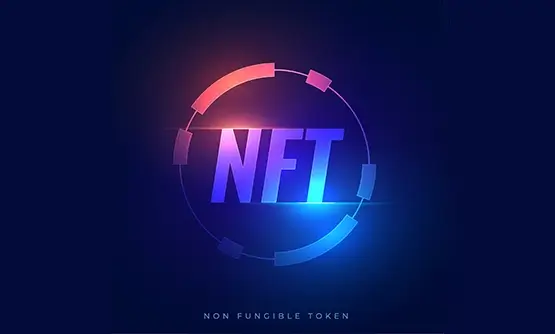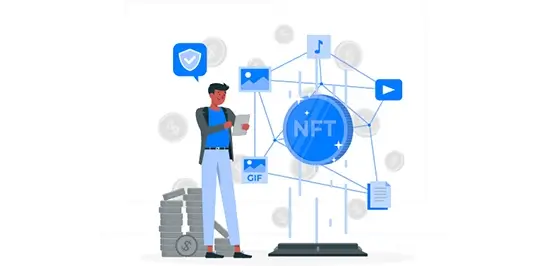Soul-bound tokens can be used by creators in the Web3 space to show initial provenance and commit to scarcity. Now, these people mostly depend on centralized platforms for doing so.
What are Soul-bound Tokens (SBTs)?
Soul-bound Tokens (SBTs) are digital tokens that are registered on the blockchain and are non-transferable in nature. These tokens were officially proposed in a research paper titled “Decentralized Society: Finding Web3’s Soul” in May 2022 by Glen Weyl, Puja Ohlhaver, and Vitalik Buterin, three major personalities in the Web3 movement. Vitalik Buterin also posted a blog titled “Soulbound” on his personal website earlier in the year, which showed glimpses of how Soul Bound Tokens would work. SBTs can be used for entities such as identification and qualification, which are non-transferable in nature. The necessity for SBTs has been the result of the hyper-financialization brought by non-fungible tokens (NFTs) in recent years.

What are Soul NFTs?
Soul-bound tokens can be issued and held by the so-called “Souls,” which can be individuals or communities. Souls are blockchain accounts or wallets that can create and administer SBTs. A Soul NFT can store unchangeable records such as educational qualifications, work experiences, and official identifications. These NFTs can work like curriculum vitae in the Web3 world. Soul NFTs effectively bring out the human element of uniqueness in the Web3 world. Such NFTs are required since the extremely monetized Web3 world of today still hangs in support of multiple Web2-based applications, which have degraded user experiences in the past. It is to be noted that a human can have multiple Soul NFTs that can store different sets of non-transferable information.
How Do Soul-bound Tokens Work?
Basically, Soul-bound tokens work much like NFTs, but with the factor of non-transferability included. These tokens can also be called non-transferable NFTs, as they cannot be interchanged for one another, and their ownership cannot be changed. The addresses of the SBT and the Soul NFT lie publicly on the blockchain, which can be verified by anyone. People can quickly check and prove the trust circles of a particular Soul or SBT. Such verification enables the “Trust Factor,” which has been difficult to find in the Web3 world previously due to many reasons.

Features and Uses of SBTs
These tokens can also be used by DAOs to counter the threat of sybil resistance. Now, such resistance is possible when voting through tokens and using Web2 social media profiles.
SBTs can also be used by general Web3 enthusiasts who have been using custodial wallets from centralized crypto exchanges, as private wallets’ complexity does not allow them to use one.
Also, Soul-bound tokens can be used for Decentralized Finance operations to support common real-world financial activities, which were previously impossible due to the lack of identity in the Web3 world.
Soul-bound tokens can also be the kickstarter for the so-called “Decentralized Society” (DeSoc), which is said to be Web3’s ultimate goal by combating common struggles encountered by the Web3 world.
What are the Use Cases of Soul-bound Tokens?
- Proof-of-Attendance-Protocol (POAP) is based on projects sending NFT badges to individuals to certify that they personally attended an event. These can be made non-transferable, which can make them soul-bound tokens.
- Proof-of-Humanity (POH) is a mechanism that uses similar principles to associate a Web3 profile on the blockchain with a real-world human being. This can be helpful in creating sybil-resistant communities.
- Medical record management can become easier using SBTs as a special Soul for medical records can store your health information. This abolishes the long process of searching through medical records.
- Uncollateralized personal loans can be provided by DeFi platforms using SBTs similar to the real world. This is since SBTs intend to serve as identities for individuals in the Web3 world.
- Legal contracts such as rental agreements can be provided in the form of SBTs for the same reason as above. This can be beneficial when Web3 comes into general use.
- Decentralized Autonomous Organizations (DAOs) can benefit from SBTs as they convert these protocols to be sybil-resistant. DAOs can have protocols to check SBTs and the owning Soul through multiple methods.
What Does the Future Hold for Soul-bound Tokens and How are We Involved?
Even though Soul-bound tokens have been only a research-worthy concept so far (similar to blockchains in the 1990s), their future is bright at best. Blockchain corporations worldwide have already started researching the nuances involved in the concepts of soul-bound tokens and souls. Although no revelations have been made, it is expected that there will be updates soon. Our experienced professionals also have been following industry updates and interpreting the new facet of Web3 from different perspectives. You can find how we can help you with creating SBTs as soon as their development becomes possible.














